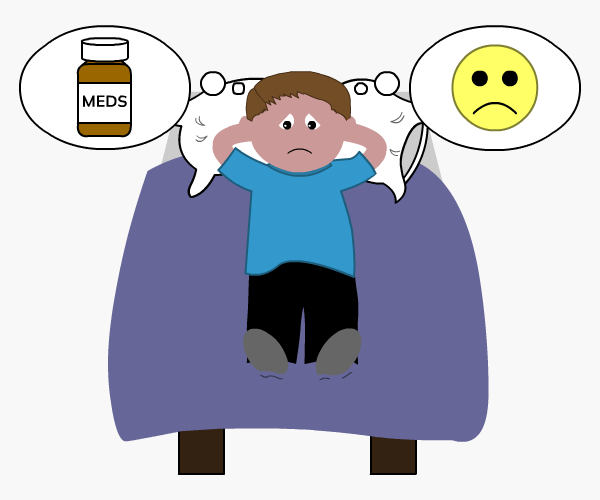
Antidepressants are regularly prescribed for depression and are also used to reduce the risk of suicide. However, there is mounting evidence that antidepressants can cause suicidal thoughts in a person who previously had no thoughts of suicide.
The Effects of Antidepressants on Children and Young People
In the USA in 2005, the FDA required antidepressant manufacturers to include warnings on their products relating to prescriptions for children and young people. It took the form of a Black Box Warning aimed at doctors and pharmacists which was placed on the package inserts. This warning was linked to research that showed children and young adults taking antidepressants were twice as likely to have depression and suicidal thoughts compared to patients taking a sugar pill. The research also found that the risk was greater for those taking these drugs for anxiety and other mental health related conditions.
Antidepressants and SSRIs
The main problem seems to be related to SSRIs (Selective Serotonin Reuptake Inhibitors) which are used to treat depression by inhibiting the uptake of serotonin in the brain. However, there are a few problems associated with this theory:
- The human brain is an extremely complicated organ and we do not know enough about the workings of the brain or serotonin levels.
- We have no way of measuring serotonin levels in the brain of a living human (other than cuttingmopen the skull).
- Even if we could cut open the skull, we do not know what a normal level of serotonin should be in a child, adolescent or adult.
It is therefore vital that we examine the risk of SSRIs to children and young people.
Negative Side Effects of Antidepressants Including SSRIs
Worryingly, further studies have shown that SSRIs can trigger feelings of aggression and impulsivity leading to homicide and suicide in some patients who did not suffer from aggressive tendencies prior to taking the prescribed drugs. A number of studies have also shown increased levels of irritability, hostility, agitation, insomnia and panic attacks. The negative side effects of antidepressants are most likely to occur when a patient starts taking or discontinues the drug. They can also occur when the doctor increases or lowers the dose or when switching the patient from one SSRI to another. So what can be done to reduce the negative impact of some antidepressants?
Reducing the Risks of Antidepressants
First, we need accurate data from pharmaceutical companies regarding clinical trials carried out on their products. There have been suggestions that some companies underreport the harm caused during trials on antidepressants or, even worse, they completely omit negative data. Governments need to put pressure on these companies to ensure all data is accurate, honest and safe. GPs and psychiatrists must exercise caution when prescribing antidepressants to patients, especially to children and adolescents.
We are all responsible — we must all raise awareness of suicide and encourage parents, teachers, friends and family to look out for any signs that a loved one is contemplating suicide. This subject will be discussed in our next blog Suicide and How to Recognise the Signs.
Related: World Suicide Prevention Day

